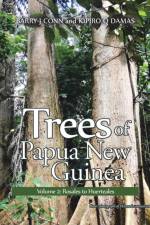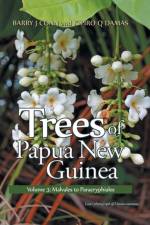- Volume 2: Rosales to Huerteales
av Barry Conn & Kipiro Damas
1 395,-
The island of New Guinea has a high diversity of species and a high level of endemism, containing more than 5 percent of earth's biodiversity in just over one half of a percent of the land on earth. New Guinea supports the largest area of mature tropical moist forest in the Asia/Pacific region. Papua New Guinea consists of the eastern part of the island of New Guinea, plus the islands of the Bismarck Archipelago, Buka, and Bougainville. There are between fifteen thousand and twenty thousand species of vascular plants in Papua New Guinea, with at least two thousand species of trees. The most important challenge for Papua New Guinea is the protection of biological diversity against the pressures resulting from global climate change, inappropriate destructive conversion of natural communities, unsustainable exploitation of forests, national economic development, and societal demands, including a fair sharing of the nation's wealth and law and order issues.There are very few resources available to natural resource managers, environmental scientists, nongovernment agencies, and various extractive industries, most importantly, the timber industry that will assist in the identification of major tree species within Papua New Guinea. It is hoped that the publication of these three volumes will enable those who are responsible for natural resource management to improve their knowledge of the trees in these forests so that they can fully appreciate the richness of these biologically diverse forests. The forests of Papua New Guinea need to be managed sensitively and sustainably based on advanced evidence-based knowledge.The Trees of Papua New Guinea publication provides a comprehensive treatment of 675 species of trees (vol. 1: 261 species, vol. 2: 249 species, vol. 3: 165 species) that will assist in the identification of the trees of Papua New Guinea.



